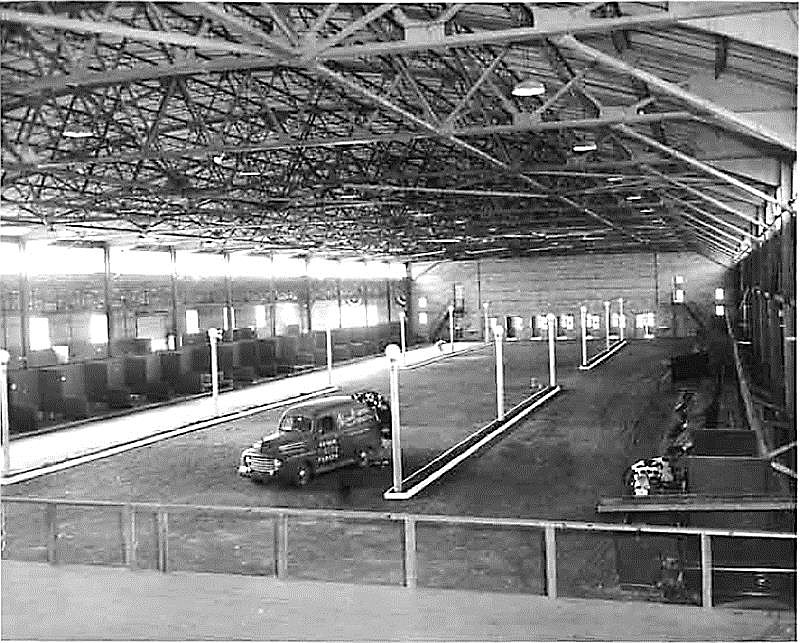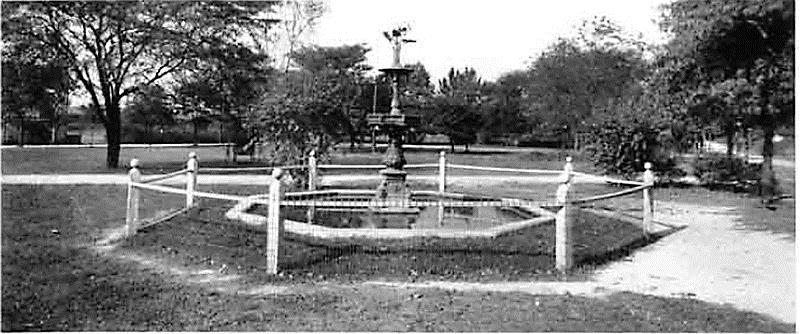Warner Park has had a colorful life as Chattanooga's main recreational park for more than a century. It opened in 1890 as Olympia Park with a track for harness horse racing as well as a baseball diamond, bandstand, skating rink and zoo.
The original racetrack grandstand was destroyed by fire in 1900. Commissioner Joseph H. Warner persuaded the Chattanooga city government to purchase the property in 1912.
The original wood fence was replaced with a new steel fence. The vaudeville theater was converted into an assembly hall. Restrooms, picnic grounds, a swimming pool, greenhouse and skating rink were laid out. The updated grounds were named Warner Park in honor of the city's first commissioner of public utilities, grounds and buildings.
Born in 1842 in Sumner, Tenn., Joseph Warner joined Company A, 19th Tennessee Regiment of the Confederate Infantry, when he was 20 and served in that unit until he was captured at the Battle of Missionary Ridge in November 1863. He spent the balance of the Civil War in a federal prison.
Warner moved to Chattanooga in 1866 and opened a store on Market Street selling iron and nails, knives, building materials, mill machinery, beltings, powder and plows. His hardware business eventually expanded to five Southern states and had several traveling salesmen.
Warner became involved in numerous ventures in iron and coal. He was one of the original organizers of the Third National Bank in 1881 and served as its first president. Becoming involved in railroading, he was credited as "practically the founder and creator of the street car system in Chattanooga," and in particular the Chattanooga Street Railroad Company.
Over the years, Warner Park has provided a multitude of recreational activities ranging from a public swimming pool and beach to an amusement park featuring a ferris wheel, roller coaster, roller skate rink and a miniature train that encircled the park. Chattanooga continued to make additions during the Depression years of the 1930s and the war years of the 1940s.
Warner Park provided the site of the Tri-State Fair, which usually ran for a week. The park also hosted a midway with various contests on local livestock as well as cooking and canning of vegetables and fruits. The Beacon Restaurant was located across the street on McCallie Avenue. Its large searchlight illuminated the sky and pointed the way to Warner Park.
The Twister roller coaster at the park operated from around 1928 to 1935. Once newer forms of racing arrived, an automobile track replaced the horse track and included a wooden grandstand. Midget auto races were featured on the half-mile flat track.
Community leaders in 1952 decided to erect the Warner Park Field House to host the Rev. Billy Graham Crusade. Graham had previously preached at the University of Chattanooga's Chamberlain Field during a 1951 thunderstorm. Supporters of the crusade planned a covered facility at the park for his second visit, which entailed dismantling the race track.
Mother Nature simplified the task with a fire on Oct. 27, 1952, which destroyed the racetrack grandstand. The bowling alley was heavily damaged as well, but the rose gardens around the park survived.
The opening of the Chattanooga Zoo in 1937 was accompanied by the construction of cages for two rhesus monkeys. Numerous changes and improvements have been made over the years thanks to a support group, Friends of the Zoo, which have continued to add to the attraction.
In 1998, the Association of Zoos and Aquariums gave accreditation. In 2012, the Chattanooga Zoo celebrated its 75th anniversary, highlighting its innovative exhibits, educational offerings, commitment to conservation and aspiration to be a top destination for residents and visitors alike.
The Warner family made a second contribution to historical preservation when it built the stately Warner House at 800 Vine St. in the Fort Wood District. The cost was $26,000. In 2013, it was appraised after extensive renovation by a real estate appraiser at $585,000.
After more than a century of service, the Warners can be proud of this house as well as the continuing advancements and expansion of the park on McCallie Avenue that bears the family name.
Jerry Summers is an attorney with Summers, Rufolo & Rodgers. Mickey Robbins, an investment adviser at Patten and Patten, contributed to this article. For more, visit Chattahistoricalassoc.org.

